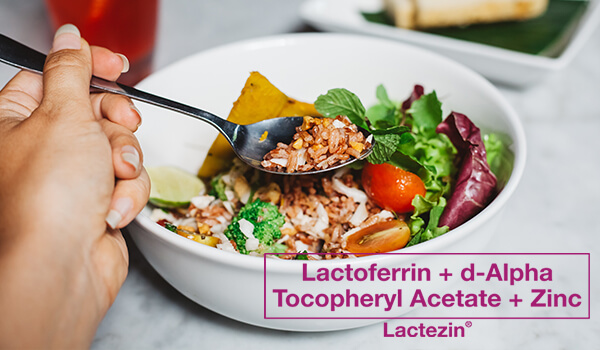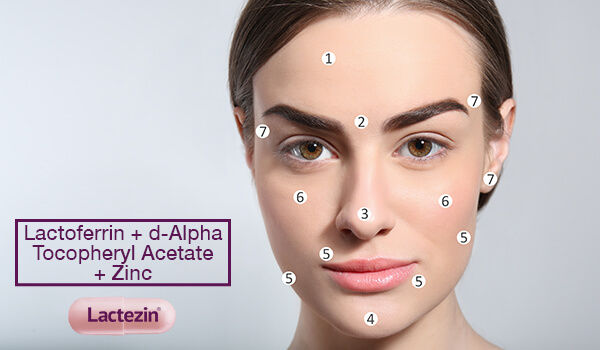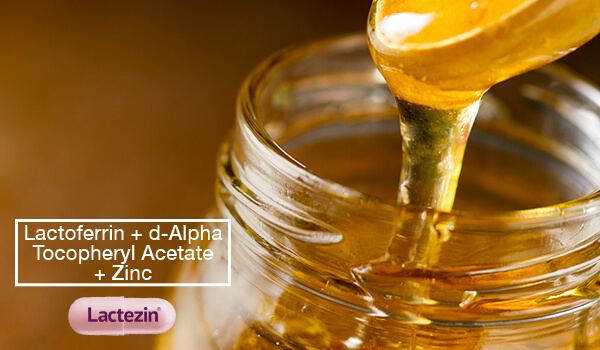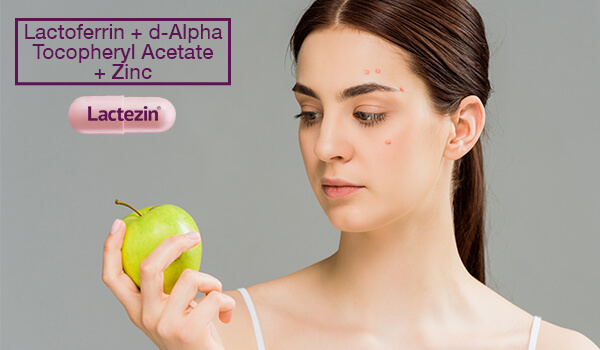The Link Between Food and Breakouts: Can You Prevent Acne With Certain Diets?

You are what you eat. It’s a saying that’s been ingrained into our minds since childhood and is still relevant today. Everything you consume affects your overall body function, including the skin. And with fad diets popping left and right, it’s difficult to separate the hype on which of them prevents acne.
Below, we dove deep into 2 of the most popular diets today to see how they prevent acne — or not.
Going Low Carb AKA Keto
The keto diet is showing no signs of slowing down its popularity. How could it not? It’s a high-fat, low-carb diet that claims to help you keep the pounds off. Plus, thanks to social media, more and more people are vouching for its weight-shedding effects. However, keto enthusiasts may also notice one not-so-surprising effect: breakouts.
The idea of keto is that you’re supposed to consume only 20 to 50 grams of carbohydrates to none at all. The body will then go through a ketosis process that causes it to refrain from using glucose as energy and instead dig through the fat storage for fuel. It can definitely be helpful for individuals with certain conditions like diabetes and epilepsy, but if you’re going keto primarily for skin issues, we’re sorry to say that it might not be the best choice.
The ketosis process is a stressful period in the body. It can wreak havoc to many of your bodily functions, which can lead to everything including constipation and bad breath. The skin, being the largest organ of the body, will definitely be affected, and not just for keto. Any changes made in your eating habits, especially one that has to do with fats, carbohydrates, and proteins, can inflame the skin.
A study has shown that a high-fat diet can actually increase inflammation and boost the production of sebum on the skin, increasing the risk for acne. At the same time, keto can make the skin dehydrated because it helps you lose water weight plus shrink your skin cells. The result is dry, irritated skin.
If clearer skin effects are what you’re looking for, then a low-Glycemic Index diet might help. It is more generous when it comes to total carbohydrate intake but mainly highlights foods that produce relatively little increase in blood glucose, which may help decrease the likelihood of acne breakouts.
Transitioning into a Vegan Lifestyle
With the current state of the environment, more people are choosing to transition into a vegan lifestyle. Going vegan means adhering to a strict no-meat and animal-byproduct diet. This also means that non-vegan skincare, clothes, accessories, and other lifestyle items are off-limits.
The vegan lifestyle completely denounces dairy – that means popular dairy items like cheese, milk, yogurt, and sour cream are not allowed. Cows are often treated with artificial hormones for their milk supply. Thus, when cow products are consumed, those hormones may throw yours off-balance and trigger the growth of acne.
A common motivation for going vegan is the promise of a healthier body. But make sure not to rely too heavily on carbohydrates with a low nutrient density like white bread, rice, and pasta as they can worsen acne.
So if you want clearer skin, you may want to consider switching to a vegan lifestyle. Results, as with any other diets, may vary though. That’s why it is still best to consult with a dietitian to maintain healthy levels of nutrients and vitamins normally found in animal-based foods, like protein, cholesterol, and calcium.
Want to further prevent the future formation of acne?
Incorporate Lactoferrin into your diet!
Lactoferrin was first discovered in bovine milk back in 1939 and was first isolated from human milk in 1960. It can be found in breast milk, and bodily fluids from the eye, nose, respiratory tract, and intestine. While it is not a new finding, this ingredient is a welcome addition to the skincare market and enthusiasts are only recently uncovering its potential now.
Studies have shown that Lactoferrin, a natural iron-binding protein, can boost the body’s natural defenses to help fight bacteria, decrease sebum or oil production, and reduce inflammation. It can also repair damaged skin cells.
Its strong antioxidant properties can help reduce oxidative stress which causes inflammation and acne. It can also stimulate the connective tissue and epidermal cells to regenerate skin cells, making acne lesions heal faster.
The combination of Lactoferrin + d-Alpha Tocopheryl Acetate + Zinc (Lactezin) can help fight pimple-causing bacteria. d-Alpha Tocopheryl Acetate or Vitamin E is an antioxidant that helps fight free radical skin damage. It can also regulate collagen and help prevent skin dryness. Zinc is an essential mineral that has oil-regulating properties to help improve skin appearance, so your skin feels rejuvenated.
Based on clinical trials, daily intake of Lactoferrin + d-Alpha Tocopheryl Acetate + Zinc (Lactezin) may help treat acne and may also improve complexion in as early as 2 weeks.
Lactoferrin + d-Alpha Tocopheryl Acetate + Zinc is the generic name of Lactezin. If symptoms persist, consult your doctor.
If you want to know more about the link between food and breakouts, click here.
SOURCES:
https://www.menshealth.com/nutrition/a20776410/ketogenic-diet-side-effects-acne/
https://www.healthline.com/health/beauty-skin-care/skin-diet#vegetarian-and-vegan


